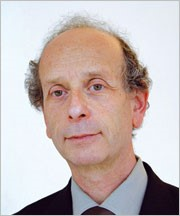Le Modèle du CERN et les grands défis mondiaux
Conférence de Michel Spiro
President de la Société française de physique et ancien Président du Conseil du CERN
Le modèle du CERN, basé sur une stratégie collaborative mondialisée à long terme et une émulation permanente (la « coopététion »), s’est révélé très efficace pour les recherches de l’humanité sur l’infiniment petit et sur l’infiniment grand. Cette aventure a eu aussi un impact considérable dans l’émergence du WEB tel que nous le connaissons, sur le développement des logiciels libres et débouche maintenant sur le calcul à grande échelle en réseau et sur l’accès gratuit aux publications des chercheurs.
Ce modèle, dont seront décrites les caractéristiques génériques, est-il cantonné à la science ? Peut-il venir en appui pour affronter les grands défis mondiaux de notre temps comme la paix, la préservation de l’atmosphère, l’éducation, l’accès à internet, la santé… ?
The CERN Model and the Great Global Challenges of our Time
Conference by Michel Spiro
President of the French Physical Society and former President of the CERN Council
The CERN model is based on a long-term strategy of global collaboration and cooperative competition (“coopetition”) between scientists. The model has proven to be an effective vector for humanity’s research in the fields of the infinitesimally small and the infinitely large. CERN’s achievements have also had a major impact on the emergence of the Worldwide Web as we know it, on the development of open software and, today, on large-scale distributed computing and open access to scientific publications.
In my talk, which traces the generic outlines of this institutional model, I will ask whether it can be replicated in fields other than science, and whether it could be used to help tackle the great global challenges of our time, such as peace, global warming, education, Internet access and health.
